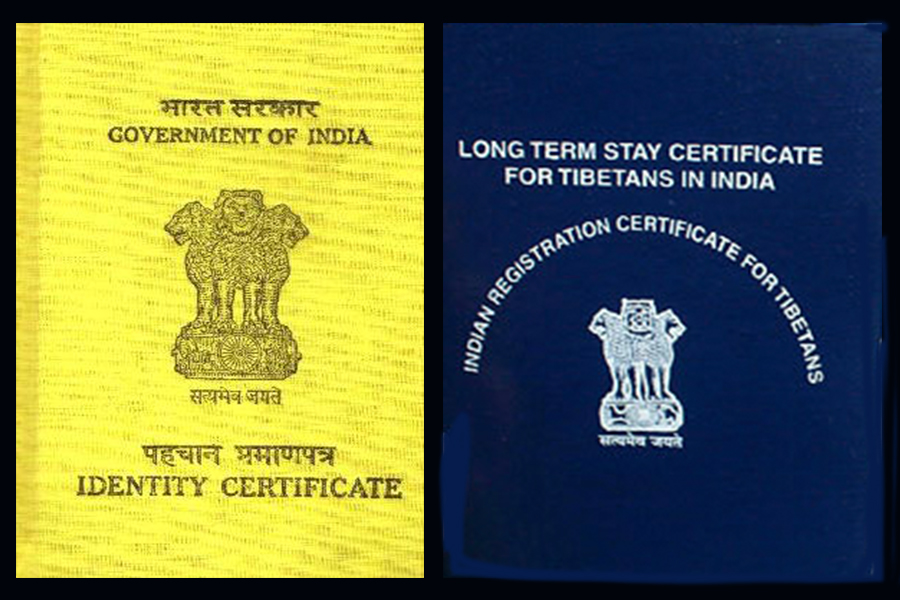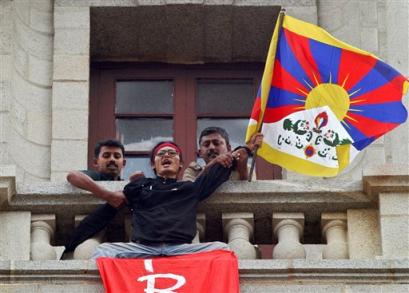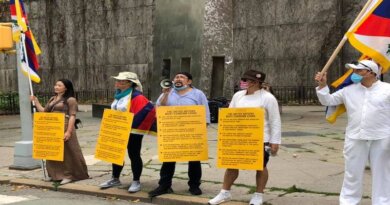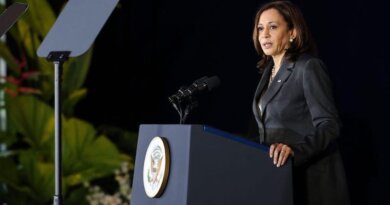CCP’s Former Tibet Party Chief Gets Death Sentence with Reprieve for $47.8M Corruption
By Tenzin Chokyi
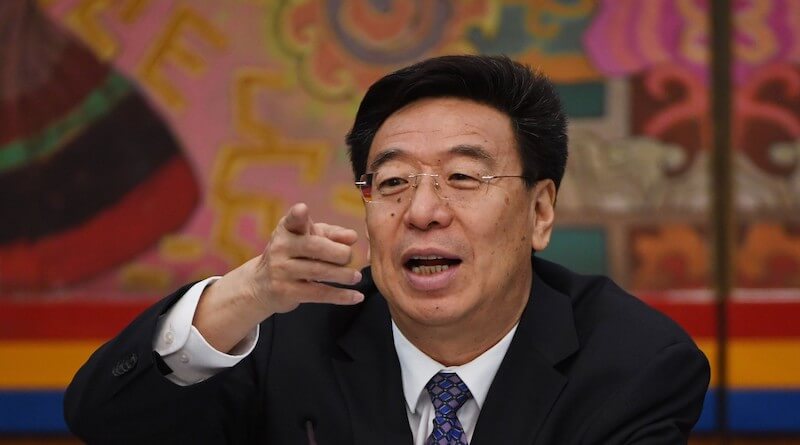
DHARAMSALA, 17 June: Wu Yingjie, China’s former party head of the so-called Tibet Autonomous Region(TAR) in occupied Tibet, has been sentenced to death with a two-year reprieve by a Chinese court in a bribery case totalling more than 343 million yuan ($47.8 million)
According to China’s state-run media, Xinhua, the Beijing No. 3 Intermediate People’s Court, in its verdict on Wednesday, deprived Wu of his political rights for life, confiscated all his personal property, and ordered illegal gains from bribery to be recovered and turned over to the national treasury.
Reuters noted, “The death sentences will only be carried out if he commits further crimes during the period of reprieve. Otherwise, he will face a life sentence after two years. ”.
According to the Court’s verdict, the CCP’s former Tibet Party Chief was found guilty of using his various positions in “south China’s Xizang Autonomous region” (a colonial reference to occupied Tibet) to accept money and valuables worth $48 million U.S dollars for granting favours in project contracts and business operations.
Wu, who worked in various departments of the so-called TAR government in occupied Tibet for over 45 years from 1974 to 2021, was found guilty of accepting bribes between June 2006 and February 2021.
The court exercised leniency in sentencing Wu, despite stating that his crimes caused “serious losses to the interests of the state and people,” citing “mitigating factors”. These included reporting “other suspected illegal and criminal activities”, which were later verified, “his confession and remorse” and “proactive return of his illicit gains”, according to Xinhua.
Wu was appointed the party secretary of the so-called TAR in 2016 and remained in the office until he retired from the post in 2021. The allegations of his involvement in bribery were first announced in June 2024, following which he was removed from the Communist Party but assumed a position on the Education, Science, Culture, and Health Committee of China’s top legislature.
Tibet advocacy and research group, International Campaign for Tibet(ICT), stated in a 2024 report that the investigation against Wu was closely connected to a 2020 meeting between Wu, Che Dalha (also a former chairman of the so-called TAR), Zhou Huan, Ouyang Weimin and Zhou Qingyu from China Development Bank (CDB), which funds several modernizing projects in occupied Tibet and Jaing Jie, then TAR party committee member.
They reportedly signed a “Memorandum of Cooperation on Development Finance Supporting Stability of High-quality Development in Tibet in the New Era”.
Since then, the reports noted, “the investigations, indictments, and trials have been variously announced against three of the six participants of this meeting while one has disappeared from public view”
The report said that “the proximity of announcements might be connected to a few groups of people working on Tibet – if corruption is the real reason for the investigation.”
Critics argue that Xi’s anti-corruption campaign is selectively enforced to overpower and eventually eliminate differing political views and power rivals.
The report concludes that “it may be some time before there are conclusive answers about Wu’s actions and those of other members of this circle, but facts, however, are indicative of the nature of Chinese rule in Tibet”.
“The absence of a free press, freedom of speech, and an independent judiciary has created the conditions for massive, endemic corruption that includes China’s highest leaders in Tibet. Xi’s anti-corruption campaign may remove some of these officials from power, but it has not addressed the broader factors that gave rise to their corruption in the first place”, reported ICT.
Wu was previously sanctioned by the US Department of the Treasury in 2022, under the Global Magnitsky Human Rights Accountability Act, citing involvement in “serious human rights abuses in occupied Tibet”.


